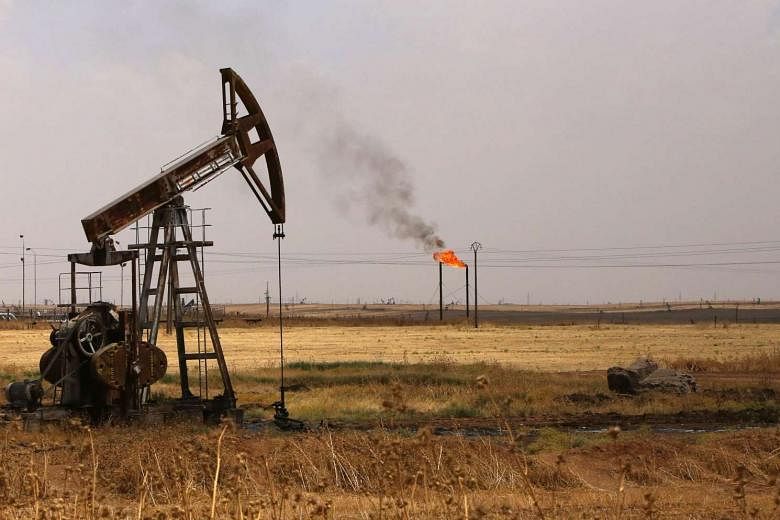SINGAPORE (BLOOMBERG) - Oil extended its biggest monthly slump in nearly seven years as Iran vowed to boost production almost immediately after sanctions are lifted.
Futures fell as much as 1.6 per cent in New York after capping a 21 per cent drop in July. Iran can raise output by 500,000 barrels a day within a week after the end of sanctions and by 1 million a day a month after that, the state-run Islamic Republic News Agency reported. A Chinese private factory gauge released on Monday fell to a two-year low in July, while an official index on Saturday slipped to the least in five months.
Crude slid into a bear market last month as raw materials fell amid expanding supplies and concern demand in China may falter with slower economic growth. Iran's nuclear deal with world powers has fueled speculation about when and by how much it will lift output. Sanctions against the Persian Gulf nation should be lifted by late November, the oil ministry's Shana news agency reported.
"If Iran is able to increase production to the level it estimates, oil prices will see further declines as that will only add to the existing glut," said Hong Sung Ki, a commodity analyst at Samsung Futures Inc. "Weaker economic data in China and the US. will decrease demand."
West Texas Intermediate for September delivery lost as much as 77 cents to US$46.35 a barrel in electronic trading on the New York Mercantile Exchange and was at US$46.68 at 1:55 p.m. Singapore time. It fell US$1.40 to US$47.12 on Friday, the lowest close since March 20. Total volume was about 9 per cent below the 100-day average for the time of day. Prices are down 12 per cent this year.
Brent for September settlement dropped as much as 71 cents, or 1.4 per cent, to US$51.50 a barrel on the London-based ICE Futures Europe exchange. Prices have slid more than 20 per cent from this year's high on May 6, meeting a common definition of a bear market. The European benchmark crude traded at a premium of US$5 to WTI.
Iran plans to double exports, IRNA reported, citing Oil Minister Bijan Namdar Zanganeh in an interview with state TV. The Islamic Republic produced an average of 2.85 million barrels a day last month compared with 3.6 million at the end of 2011, according to estimates compiled by Bloomberg.
Hedge funds reduced bullish bets to the lowest level in five years as the world's biggest oil companies including BP said prices will be lower for longer. The net-long position in WTI contracted 7 per cent in the week ended July 28, U.S. Commodity Futures Trading Commission data show.

